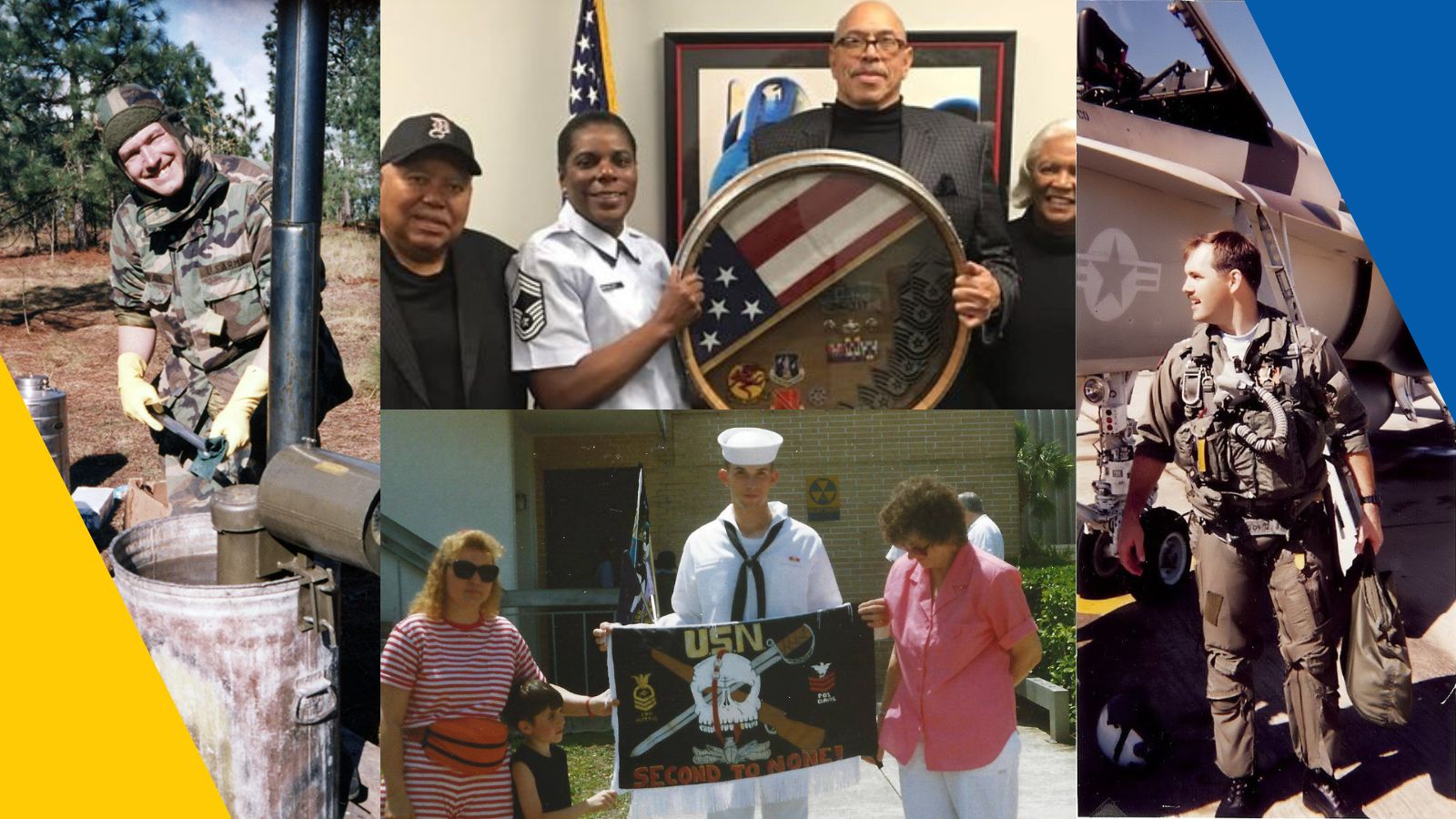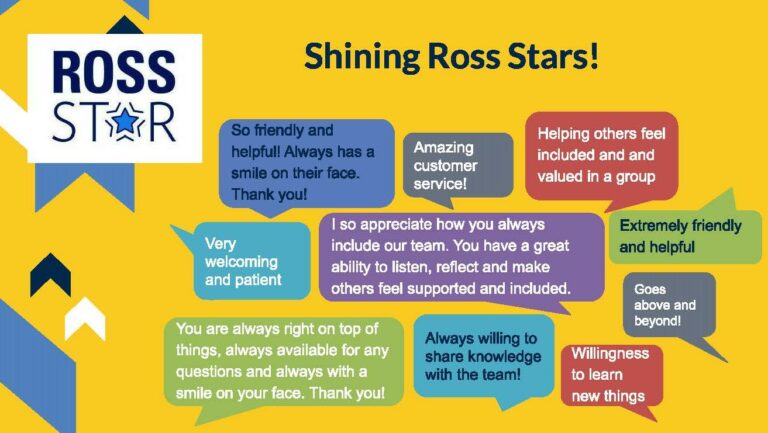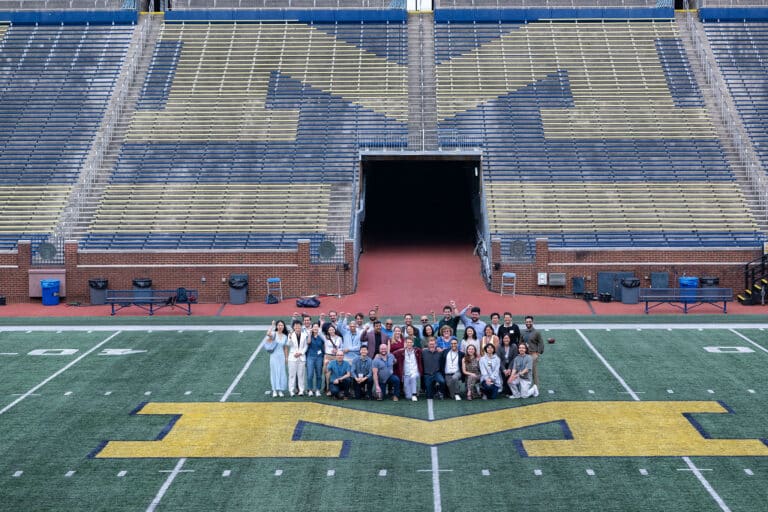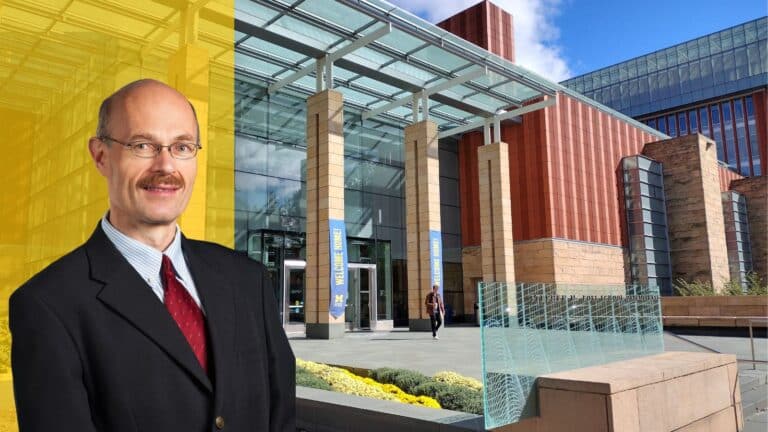Q&A: Michigan Ross Faculty and Staff Share Takeaways from Past Military Service
Before joining the faculty and staff at Michigan Ross, some of our community members served in the U.S. military in different capacities. To honor the service of our veterans and recognize the upcoming Fourth of July holiday, we asked our Michigan Ross veterans about their military experiences and any takeaways from their service that they apply to their work today.
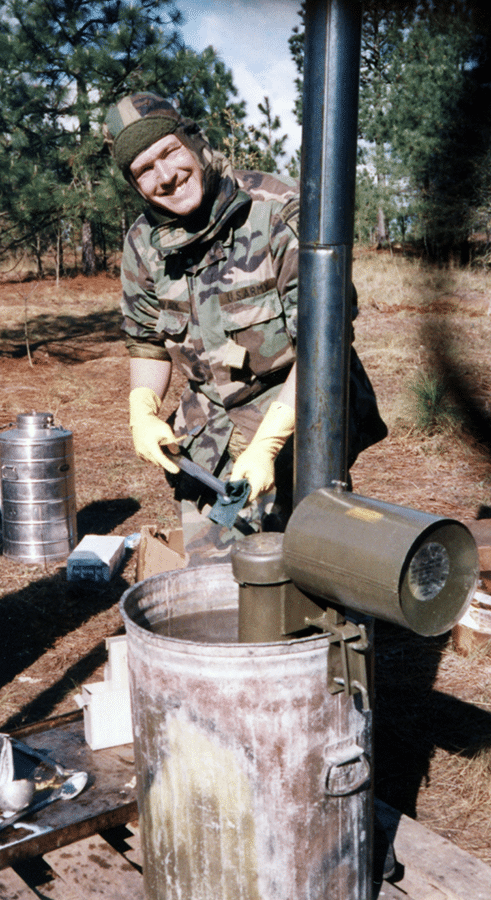
RJ Novack, systems administrator senior, Ross IT
Army (1987-1990), National Guard (1990-2001)
Can you share a bit about your experience in the military?
I served in active duty at Ft. Bragg, now Ft. Liberty, North Carolina. In my role, I performed the logistics end of motor pool operations, working with repair parts and maintenance records for the Headquarters and Headquarters Battery, and then a nine-launcher, 18-ammo carrier multiple launch rocket system firing battery in the 3rd/27th FAR MLRS.
I served in the same role for a self-propelled howitzer unit in the Pennsylvania National Guard for the Headquarters and Headquarters Battery of 1st/107th FAR in New Castle, Pennsylvania. I was also the in-house computer geek (quelle surprise), as the unit was just beginning to automate human resources and motor pool functions.
Are there any takeaways from your military service that you apply in your work today?
Planning is everything. I learned to anticipate and have contingencies in place in case the routine becomes not routine. A corollary is that having a working knowledge of how systems work, regardless of their type, makes contingency planning easier and more complete.
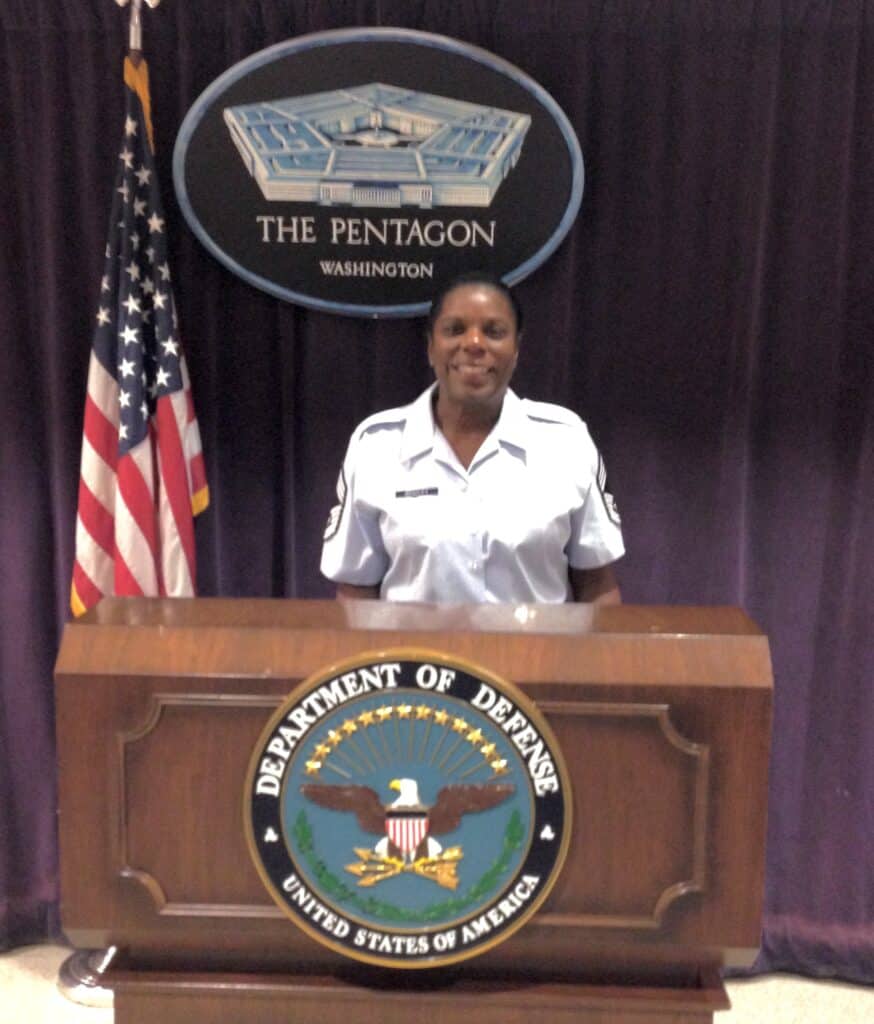
Lisa Bradley-Kern, director, Employer Relations, Career Development Office
Air Force (1987-2018)
Can you share a bit about your experience in the military?
I enlisted into the Air Force on active duty on June 15, 1987. For most of my military career, I worked as a personnel specialist overseeing promotions, separations/discharges, changes in duty stations, reclassifications, training, and performance reports. My first duty station was at Anderson Air Force Base, Guam. From Guam, I transferred to Dyess AFB in Abilene, Texas. In 1994, I returned to Michigan and transferred to Selfridge Air National Guard Base in Mount Clemens. I continued working as a personnel specialist until 2015 when I was promoted to chief master sergeant and became the operations group superintendent for the 127th Operations Group. In my role as operations group superintendent, I was responsible for all movement and training for the Operations Group enlisted members. During my first three years with the Operations Group, I was the only female chief in the rank of E-9 stationed at Selfridge. A few highlights of my military career were being deployed to Saudi Arabia two weeks following September 11, 2001, to oversee the processing of military members into the war zone. Also, during a deployment to Riga, Latvia, former Michigan Governor Rick Snyder was visiting the country and stopped by the base to visit with the deployed troops.
Are there any takeaways from your military service that you apply in your work today?
During my time in the military, I learned how to lead by example. I committed to excelling in my profession and expected the same from those who worked for me. I also learned problem-solving skills and how to think quickly on my feet. The military taught me how to read people through their actions, and I developed an attitude of empathy when working with others.
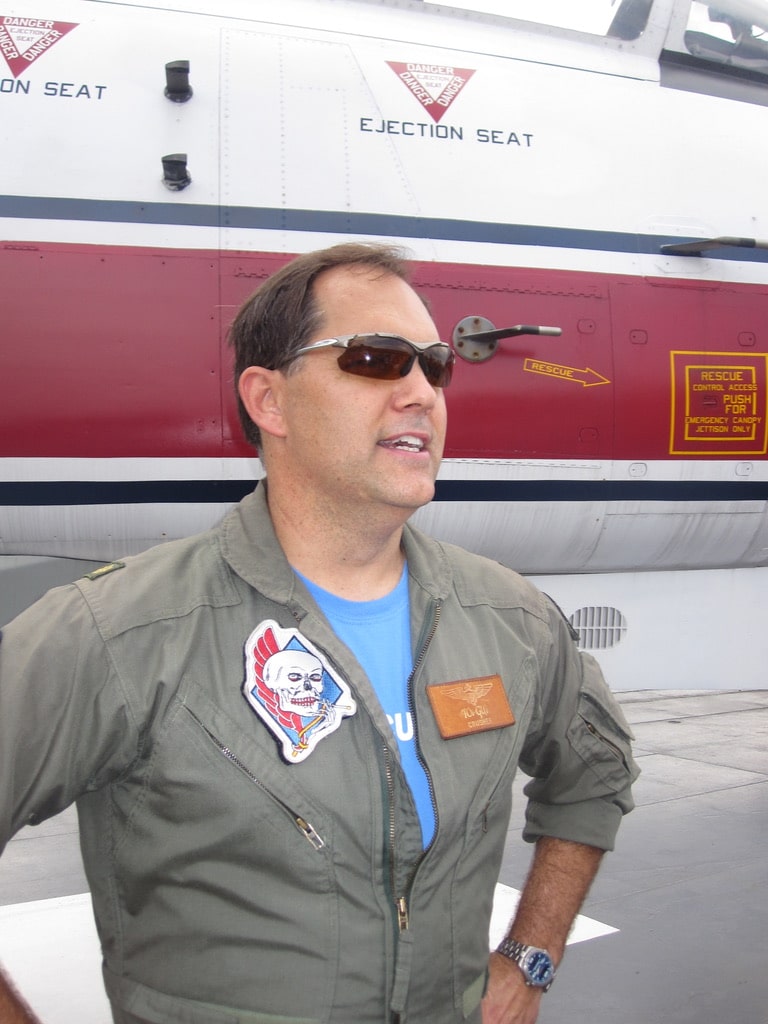
Mike Barger, clinical assistant professor of business administration
Navy (1987-1999)
Can you share a bit about your experience in the military?
I received my commission as an officer in the U.S. Navy in 1987. I served for 13 years, completing three six-month deployments as a pilot and flight instructor flying the F/A-18 Hornet aboard the USS Theodore Roosevelt and USS Dwight David Eisenhower. These deployments included combat action in Iraq during Operation Desert Storm, over Bosnia, and in the skies above the Republic of Kosovo. While in the Navy, I spent my career in pilot education, highlighted by a tour first as a student, then instructor, and finally chief instructor at the Navy Fighter Weapons School (TOPGUN).
Are there any takeaways from your military service that you apply in your work today?
There are a few sayings that come to mind when I reflect on my military service and my work today:
“We don’t learn from experience; we learn by reflecting on experience.” In other words, always find time to reflect on performance and learn from it.
“Leadership is about creating space for people to do great things that they couldn’t have done without the space.”
“When you think you have communicated enough during uncertain times, triple the effort.”
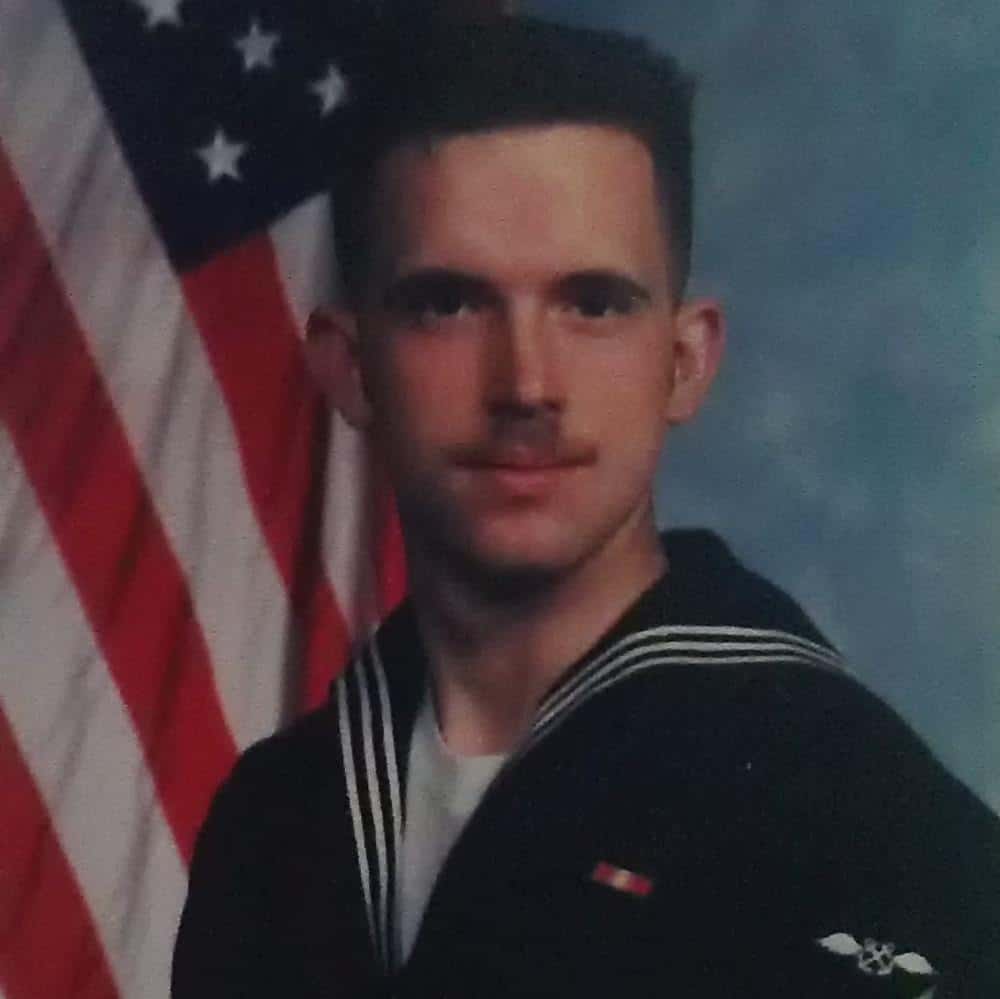
Don DuChateau, UI design engineer, Ross IT
Navy (1994-1997)
Can you share a bit about your experience in the military?
I was an active duty aviation boatswain’s mate for launch and recovery equipment stationed aboard the USS Theodore Roosevelt CVN-71 aircraft carrier.
Are there any takeaways from your military service that you apply in your work today?
Teamwork, communication, and attention to detail all come to mind when I apply what I learned during active military service. Working on a flight deck, you have to keep your head on a swivel and always pay attention to many things at once. In addition to teamwork, there is the comradery that comes along with having your coworkers back and supporting each other when the work entails tasks that one person alone can not accomplish.
